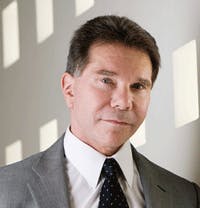Cialdini shared his six principles of persuasion as they can relate to occupational health and safety:
Reciprocation – "In the context of obligation, people say yes to those they owe," Cialdini said. In order to develop that reciprocal relationship, Cialdini told Safety 2012 attendees that they had to first provide the resources, benefits and information that can employees in their work. In return, those employees will want to give back and do those things that will help make your job easier.
Scarcity – People want more of those things they have less of, Cialdini explained, and they also like to receive exclusive information that is not readily available elsewhere. But EHS professionals must go beyond simply describing the benefits of their safety programs – they also must outline what could be lost if the programs are not followed. "People are mobilized into action by the idea of losing something of value than by gaining the same thing," Cialdini pointed out. "Information about loss is more motivating than information about gain."
Authority – Having authority, Cialdini said, is the single most effective trait a communicator can have. A credible, knowledgeable and trustworthy communicator can better persuade. Creating that trustworthiness, however, includes revealing the weaknesses in your initiatives. The trick is to admit those weaknesses in a smart way. "Before you present your strongest argument, mention a weakness or drawback," Cialdini said. "This establishes you are knowledgeable and trustworthy." He advises mentioning the weakness, bridging the argument with the word "but," and then offering your best argument.
Consistency – Cialdini explained that people want to be consistent with what they say in public. As an example, he described a restaurant that significantly reduced its "no shows" – diners who make reservations and then don't show up or call to cancel – by simply asking at the time of the reservation, "Will you please call if you need to change or cancel the reservation?" Encouraging callers to give a public commitment means they are more likely to act on that commitment. If you can get your employees to put their commitment in writing, all the better. "People live up to what they write down," Cialdini said.
Consensus – "When people are unsure, they look outside of themselves for answers," Cialdini said. "They look to their peers – what the people around them and like them have been doing." That means a statement like "Most employees are not wearing proper PPE" can backfire, because it tells employees that their peers are not wearing PPE and therefore might legitimize that behavior. "Instead of normalizing that [negative] behavior, marginalize it" instead, Cialdini suggested.
Friendship – It's no surprise that people like to say "yes" to those they know and like. The way to gain that type of relationship is to give genuine compliments to those you work with. Honestly crediting people with their good work and admirable qualities (no phony compliments allowed) will create a relationship that makes employees more willing to help you achieve your safety goals.
"It's important to focus on the delivery of your arguments because there are arguments on the other side that are also compelling," Cialdini said. "We move people in our direction by changing how we present those arguments so people open their ears and open their minds to them."
About the Author

Laura Walter
Laura Walter was formerly senior editor of EHS Today. She is a subject matter expert in EHS compliance and government issues and has covered a variety of topics relating to occupational safety and health. Her writing has earned awards from the American Society of Business Publication Editors (ASBPE), the Trade Association Business Publications International (TABPI) and APEX Awards for Publication Excellence. Her debut novel, Body of Stars (Dutton) was published in 2021.

